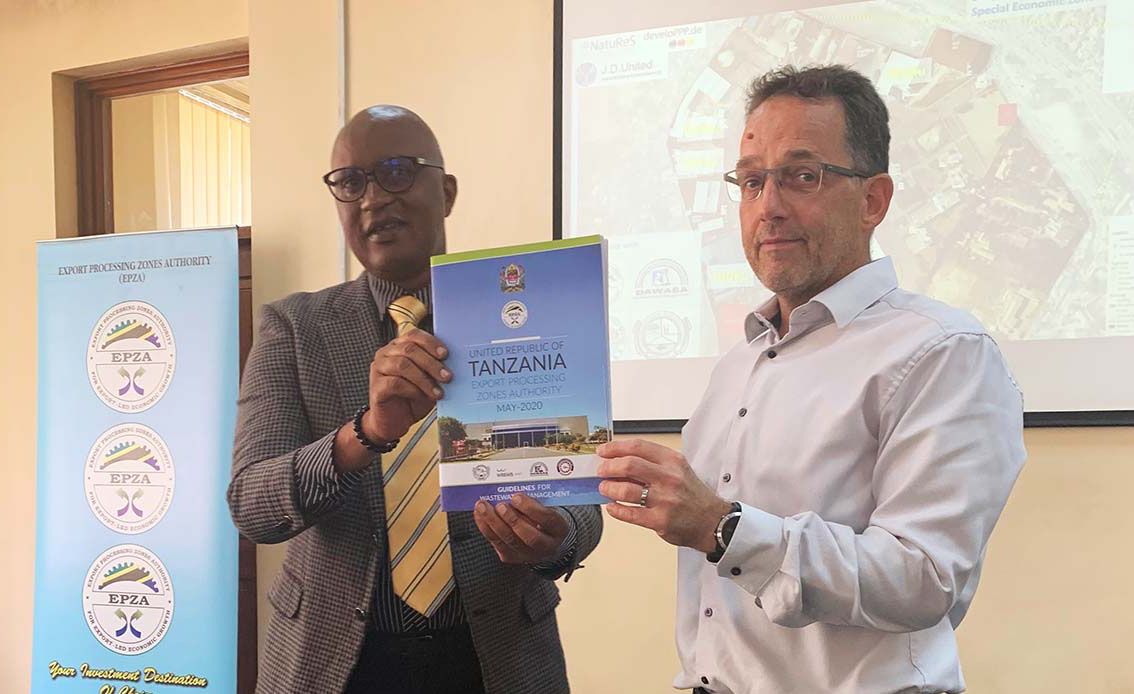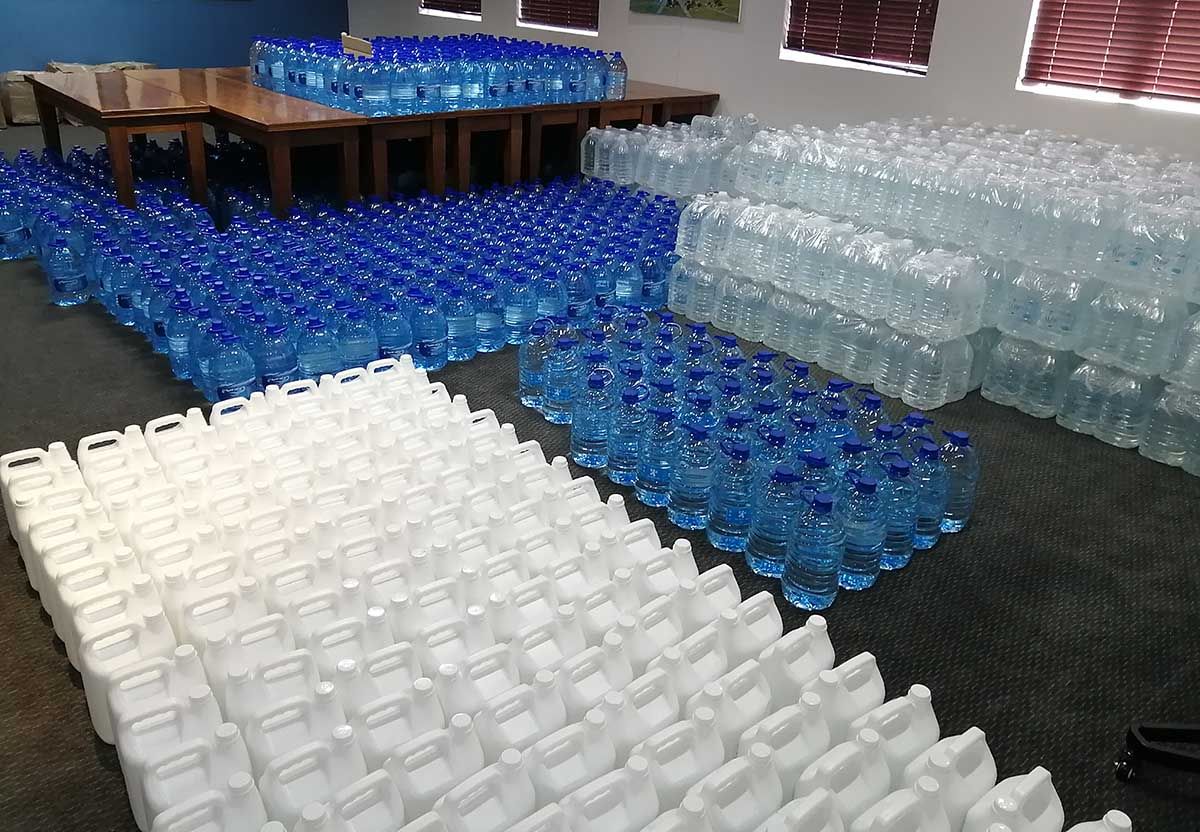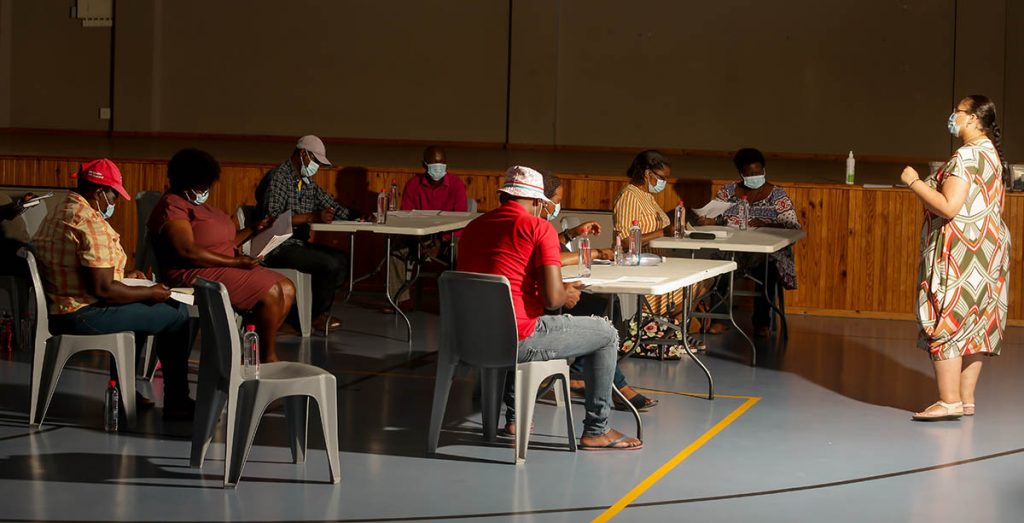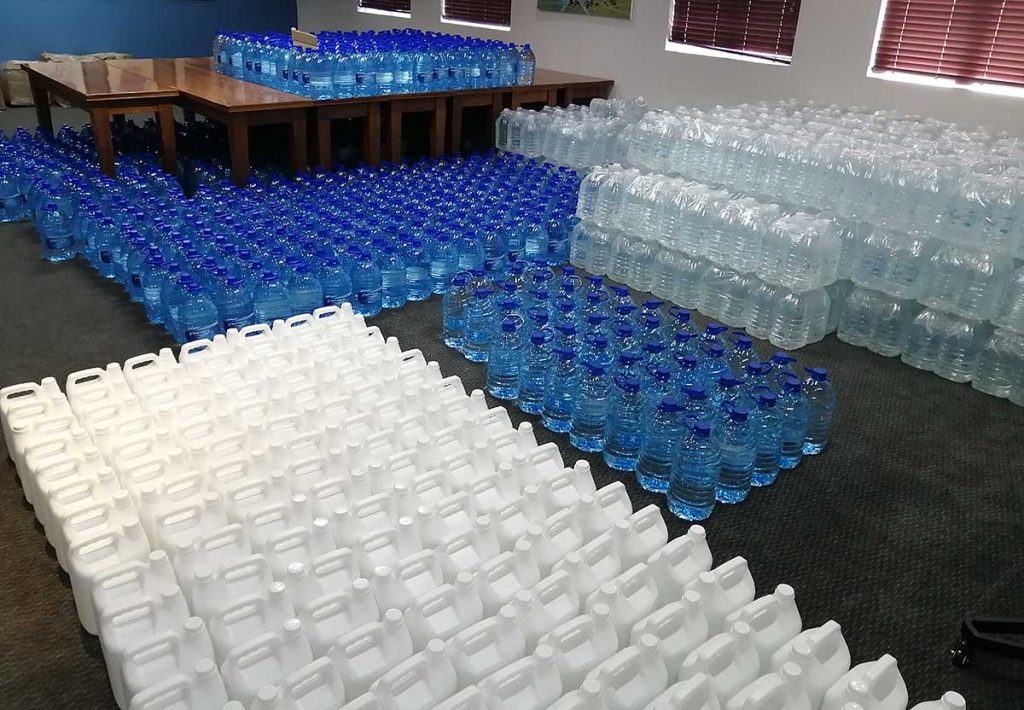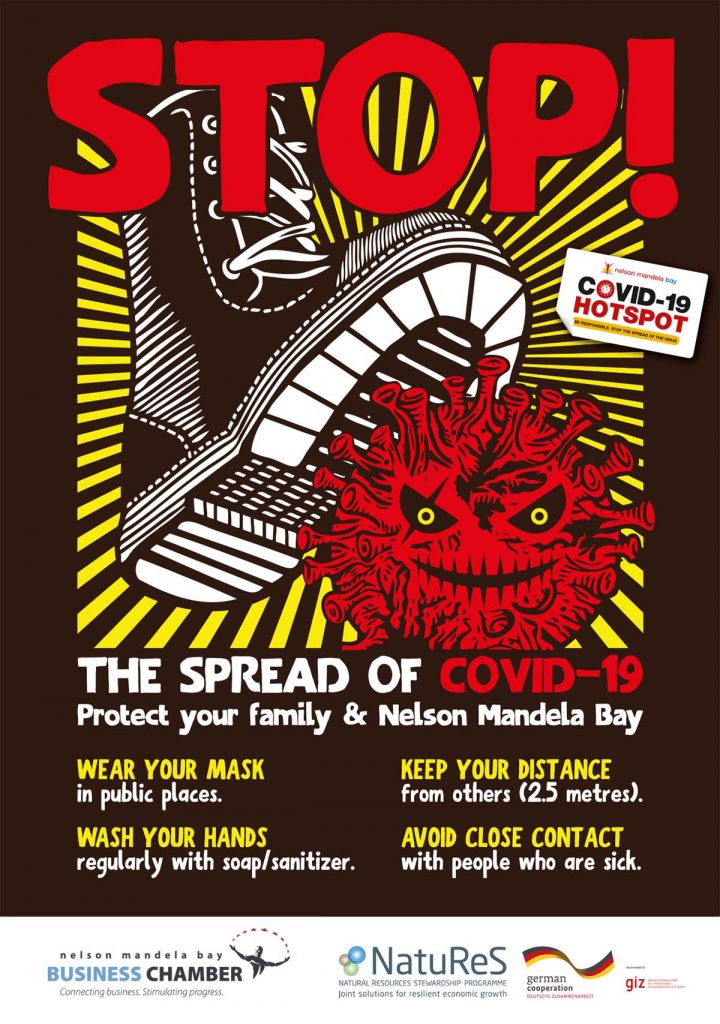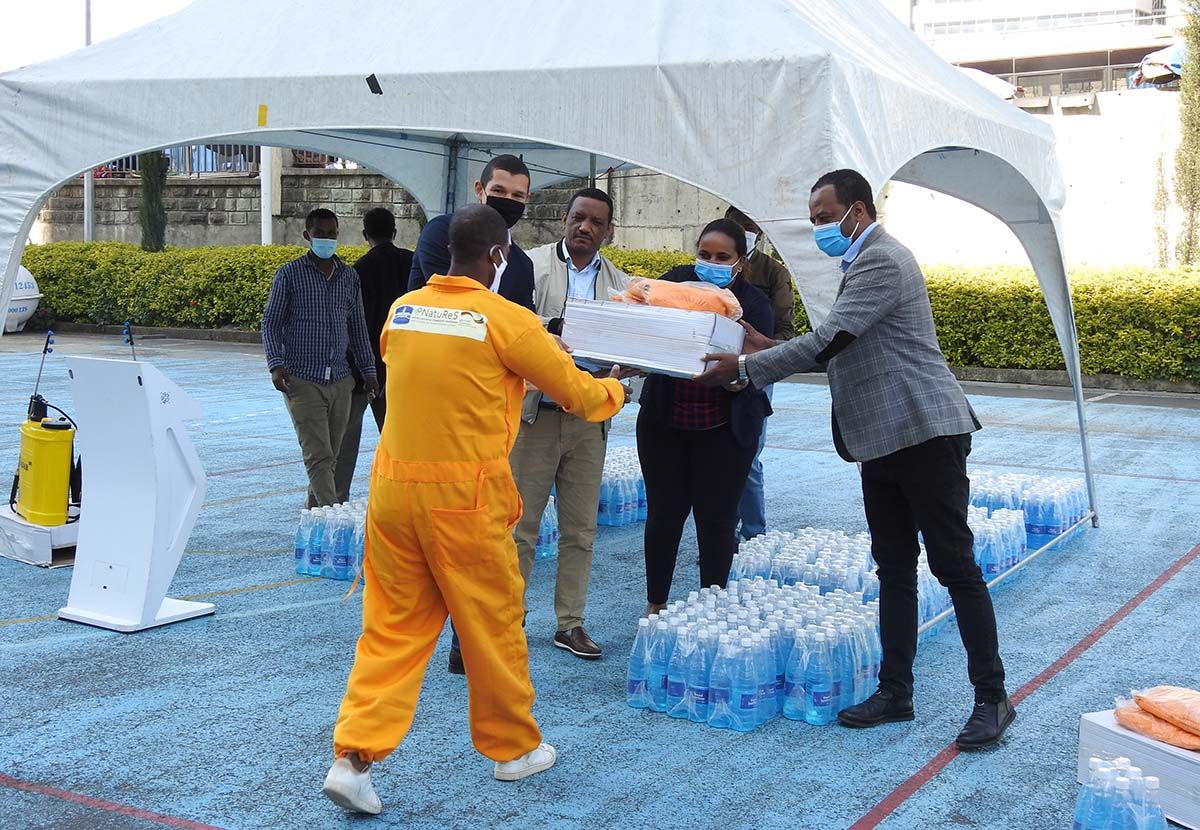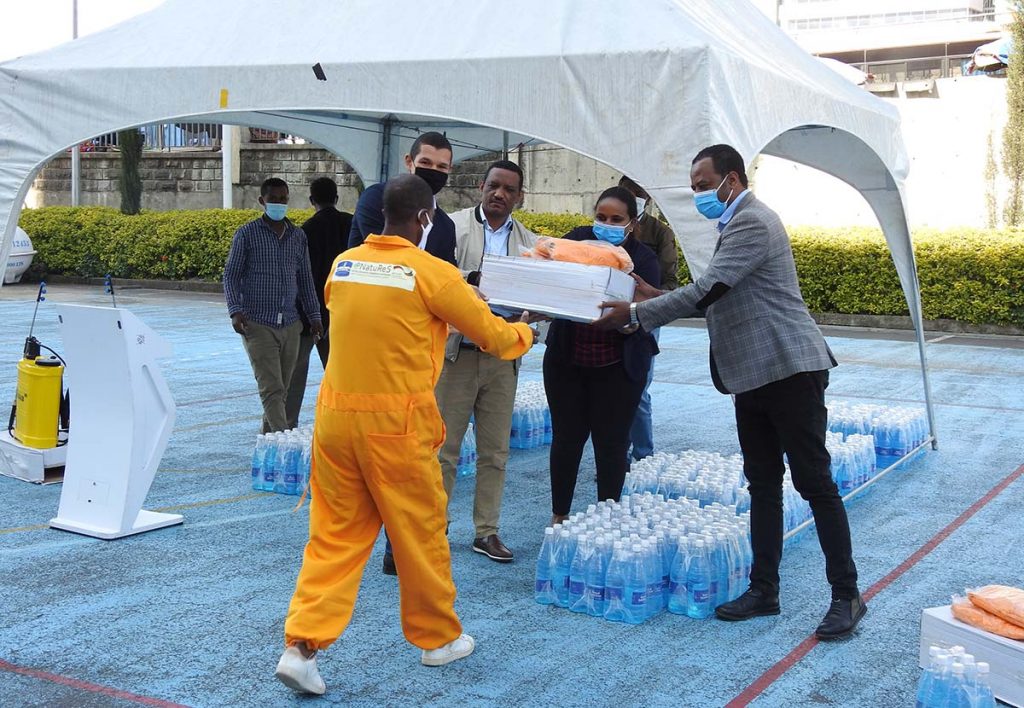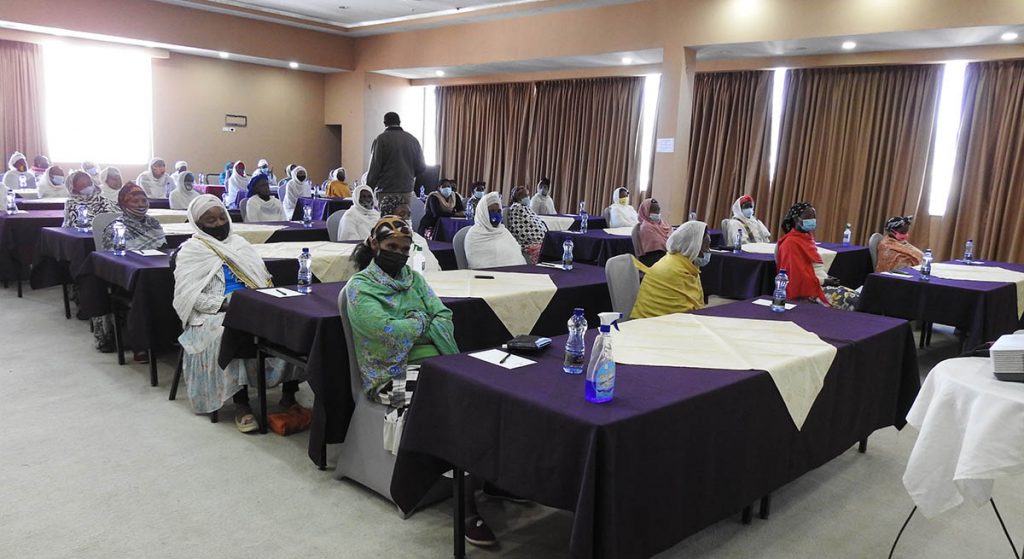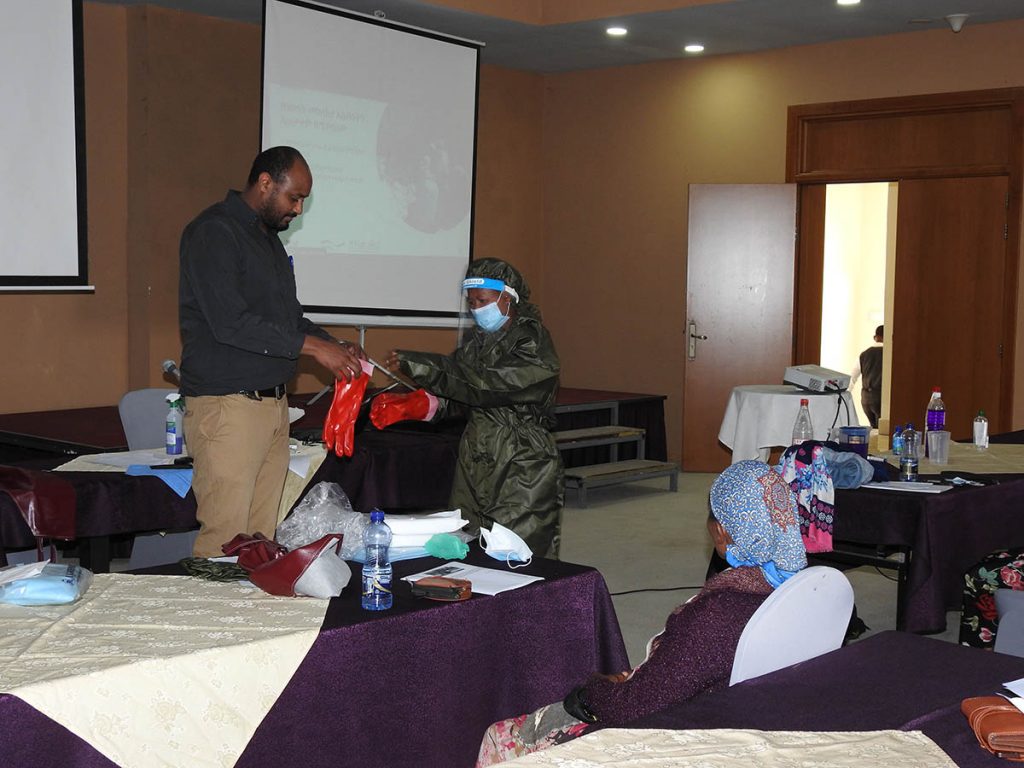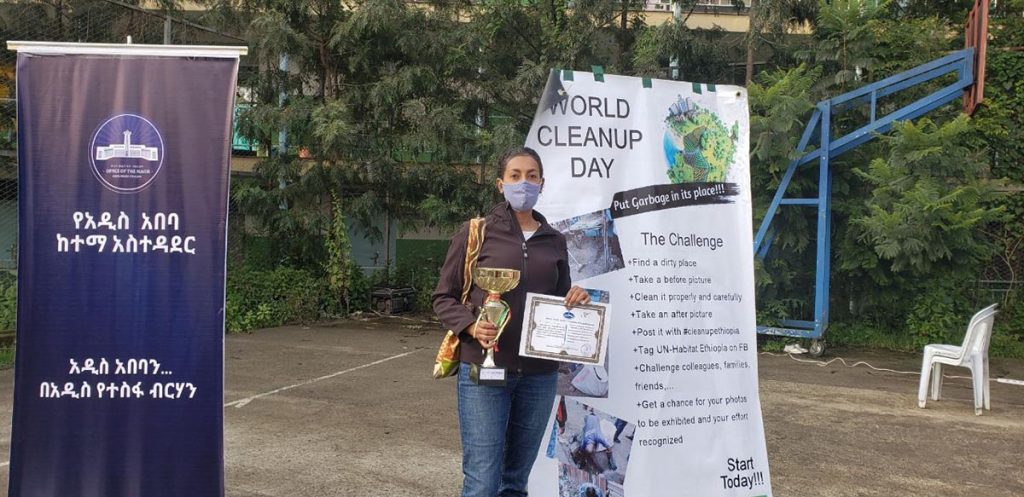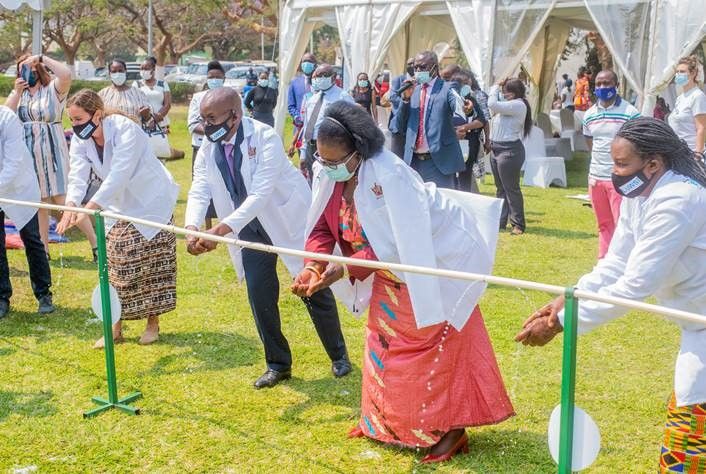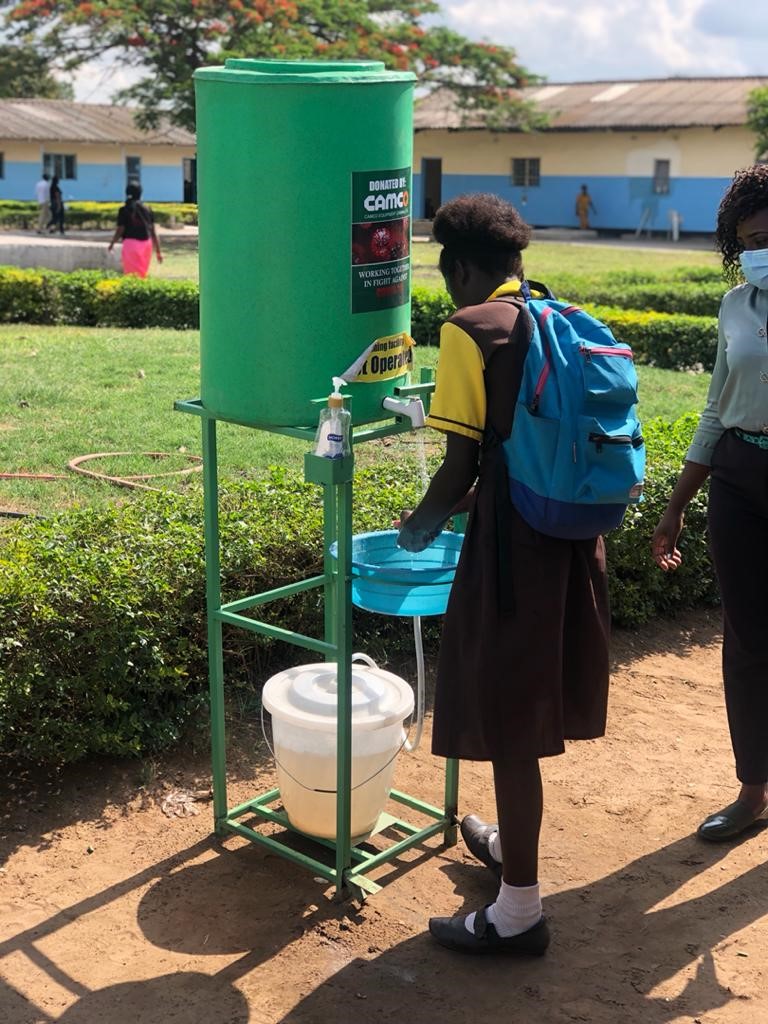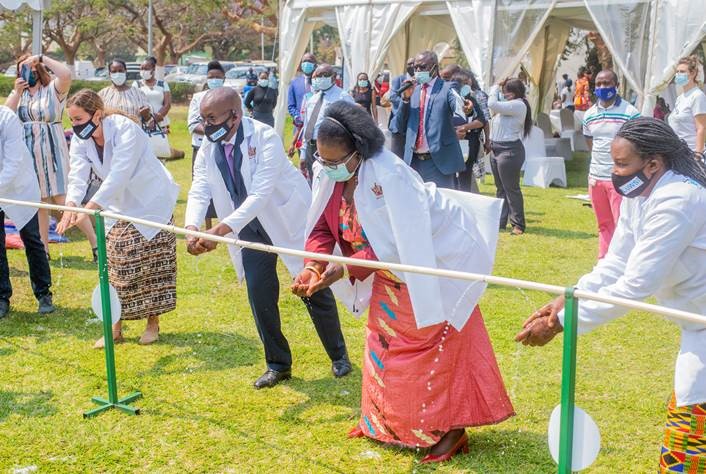Launch of Industrial Wastewater Management Guidelines
Tanzania has recently achieved the status of a low middle-income country. The creation of Special Economic Zones (SEZs) and Export Processing Zones (EPZs) under the surveillance of the Export Process Zone Authority (EPZA) are considered key in the National Development Plan.
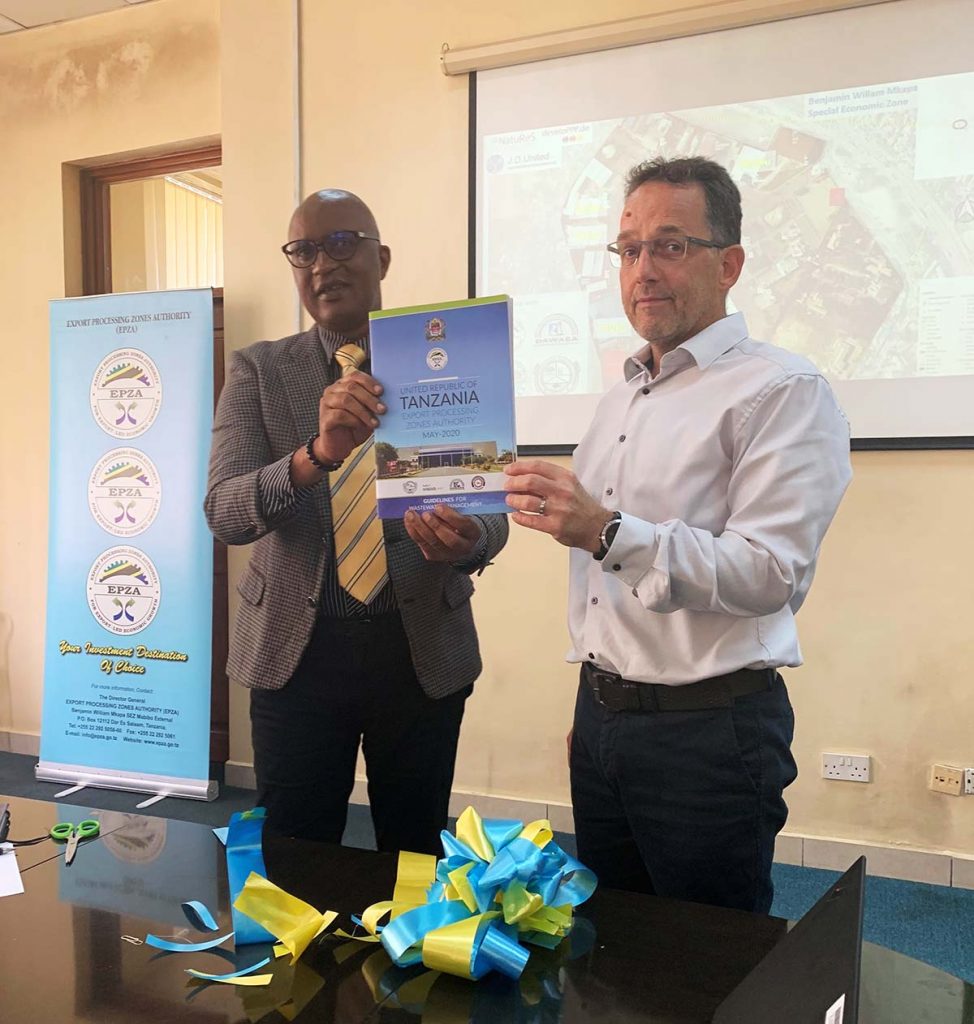
Copyright: GIZ
Wastewater from any manufacturing process is discharged back into the environment. Untreated discharge harms the ecosystem and the people using it. It also has a negative effect on foreign investments, as industries often adhere to strict environmental compliance.
NatuReS has been collaborating with EPZA to improve water security and increase attraction of the zones to investors. Under the collaboration, EPZA partnered with three other main governing bodies in regulating industrial wastewater discharge. Their goal is to develop industrial wastewater management guidelines for SEZs. Other regulators include the Basin Water Boards (BWBs), Water Supply and Sanitation Authorities (WSSA), and the National Environment Management Council (NEMC) as the highest authority to safeguard overall environmental compliance.
“We have come up with these specific guidelines that will ensure, wastewater from the zones that we are managing will cause no harm to people and environment; industries will get water at the desired quality and with no negative impacts to the surrounding communities,” said Mr. Lamau Mpolo, Director of Planning and Development at EPZA, after the launch on 18 December 2020 in an interview with Tanzania Broadcasting Corporation (TBC).
While the guidelines will cover all Export Processing Zones, they will also be distributed to other stakeholders, including district councils for efficient wastewater management, according to Mr. Mpolo.
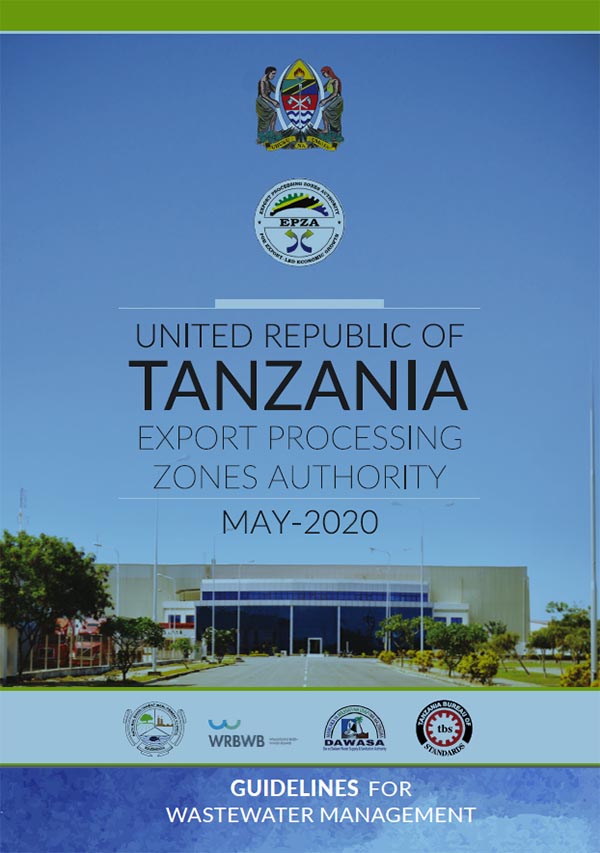
Copyright: GIZ
